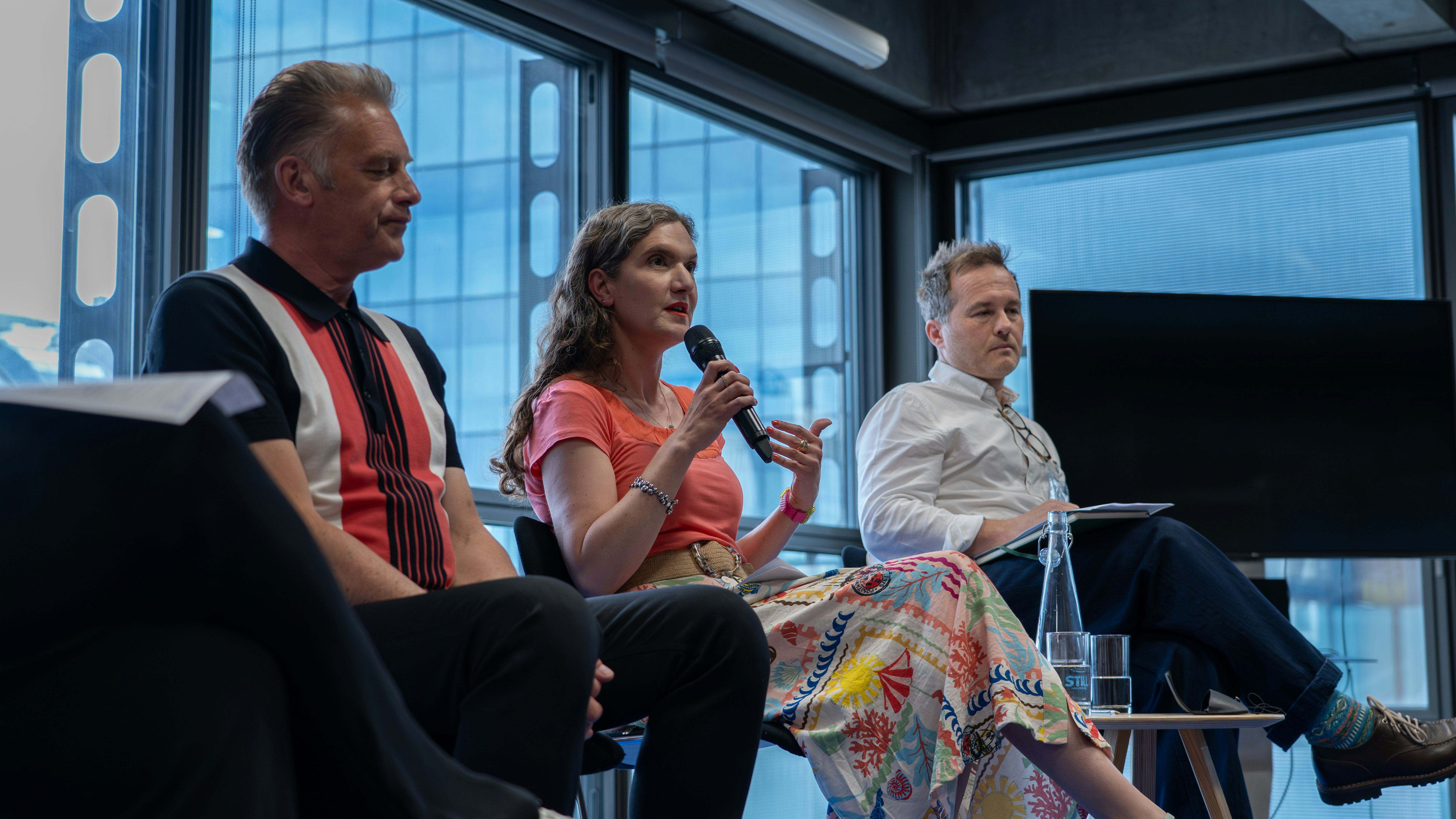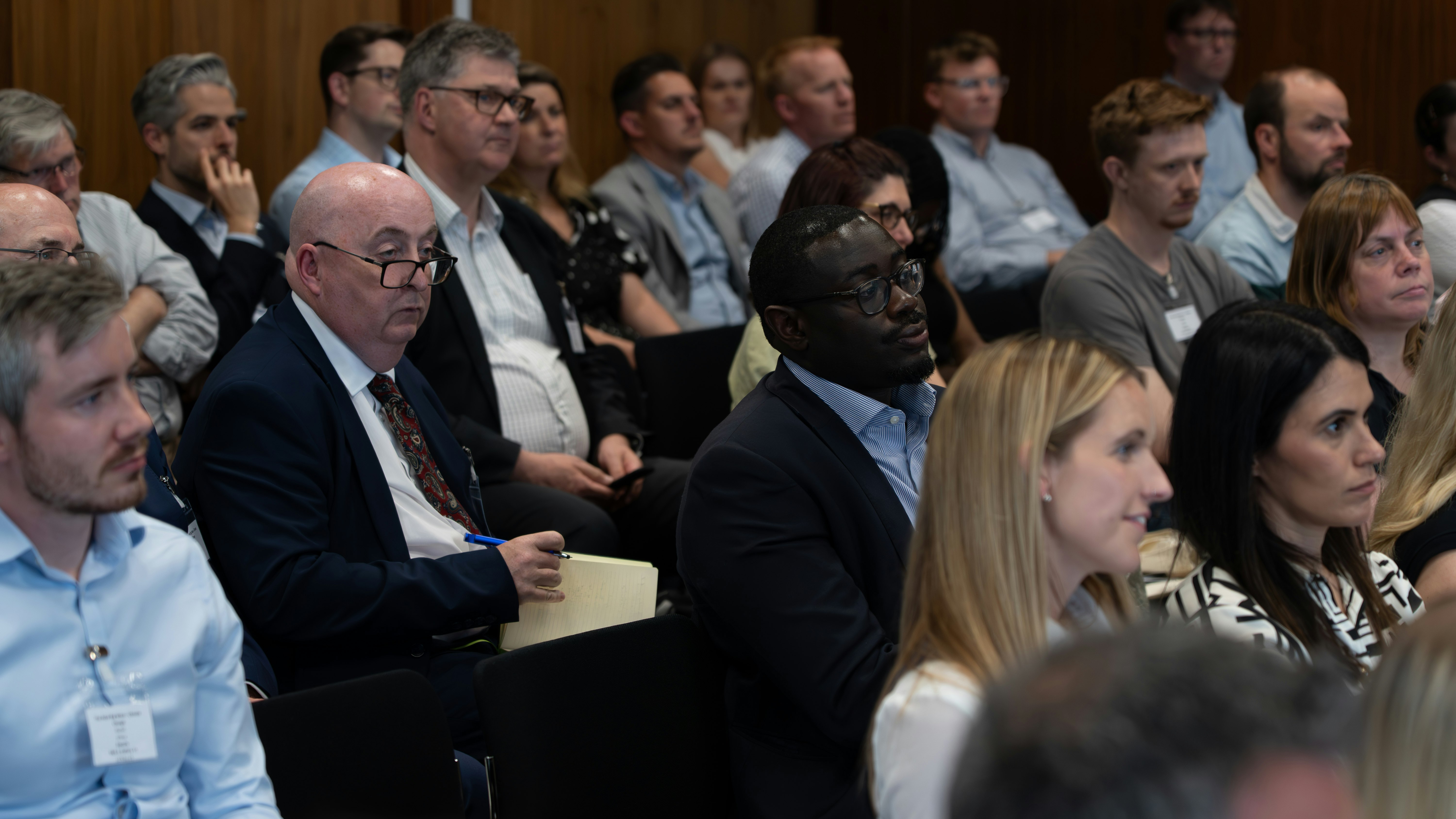Key insights from our climate change panel – the next big wave
- Written by
 Lauren Legate
Lauren Legate- Published
- May 27, 2025
Previsico’s recently hosted The next big wave: tackling flood risks in the age of climate change, an event which explored how climate change is reshaping our world, and what we can do about it.
The expert panel featured conservationist and broadcaster Chris Packham, Karl Limbert from Equans, and Estelle Herszenhorn from WRAP. Together, they unpacked the most pressing environmental challenges we face today, with a particular focus on flooding, resilience, and responsibility.
Here are some takeaways from the session:
Climate change is already here, we’re in a ‘Climate breakdown’ 🌍
- Karl Limbert warned that we tend to focus on dramatic weather events, overlooking the subtler, daily signs of a changing climate. He highlighted a £49 billion backlog in necessary public sector building upgrades, a symptom of inaction and systemic neglect.
- Estelle Herszenhorn underscored the environmental cost of our global food system, which contributes 25–30% of global greenhouse gas emissions. These impacts aren’t on the horizon, they’re happening now.
- Chris Packham shared the sobering story of the River Wye, now “almost ecologically dead” from pollution caused by flooding that washes agricultural waste into the water.

Flooding: a crisis accelerated by climate change 🌧
- Spealing about the vulnerabilities of the food chain, Estelle said: “When it comes to flooding, the next 100 years is now. We are already living the impacts of climate change.”
- Karl brought attention to the everyday causes of flood risk, such as poor drainage maintenance, a solvable but persistently overlooked issue.
- “It’s not always about major infrastructure. Sometimes it’s just about clearing leaves from a gutter", said Karl.
Solutions exist — but we must scale them 💡
- There was consensus across the panel that we already have many of the tools we need — they just aren't being used widely or quickly enough.
- Chris emphasised: “It’s not that we lack the solutions. We just haven’t been able to roll them out broadly enough.”
- Estelle shared a hopeful example of grants funding nature-based solutions along the River Ouse. When the right people act together, real impact is possible.

What Role Can Businesses Play? 🏢
- Businesses were encouraged to take proactive responsibility, starting with data.
- Karl stressed: “Start with the right data. Some see adaptation as optional — that could be the biggest strategic mistake we make.”
- Estelle highlighted how small changes — like reducing food waste and shifting to more plant-based diets — can have outsized effects, but people often underestimate their impact.
- Chris closed with a rallying cry to align financial choices with climate values:
- “Don’t feed the monster. Commit to ethical banking and insurance — put your money where your ideas are.”
The panel made one thing clear: the future of flood resilience — and climate adaptation more broadly — is not just about innovation. It’s about action. As Chris Packham put it, “We’re not waiting for better solutions. We’re waiting to use the ones we already have.”
At Previsico, we’re committed to helping organisations take those steps — with real-time, actionable flood forecasting that helps protect people, property, and the planet.